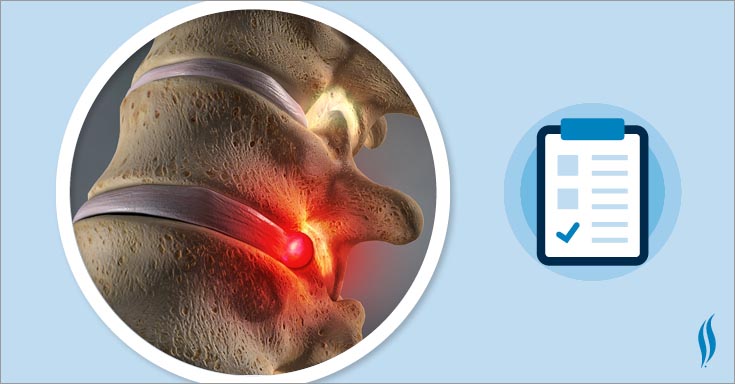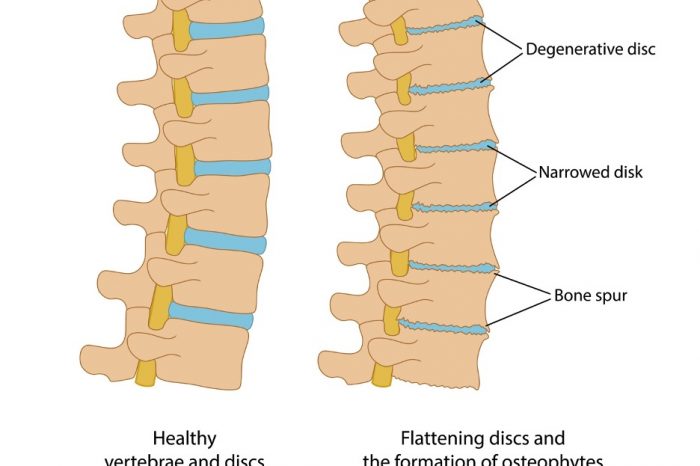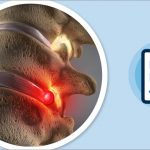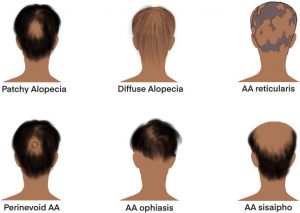Disc Protrusion Symptoms and Treatment

Disc Protrusion Symptoms and Treatment

Disc Protrusion Symptoms and Therapy: Fortunately, disc herniation does not typically require surgery. If you’ve been experiencing pain or other discomfort due to your protruded disc, you probably want to get treatment as soon as possible. The good news is that there are several conservative treatments available to treat your pain. Your doctor can help you find out if your prolapsed disc is herniated or not.
A prolapsed disc causes sudden back pain with symptoms involving a nerve root. These symptoms will usually go away after a couple of weeks, but you should visit your doctor if your pain persists. A doctor can recommend testing to determine the severity of your prolapsed disc, which is needed before it can be surgically corrected. If you’re having a hard time finding relief from your back pain, it may be time to consult with a chiropractor.
The best treatment is to take the appropriate measures to stop disc protrusion from causing any further pain. Your doctor will prescribe the proper medications to reduce pain. The best treatment will depend on the severity of your prolapsed disc. If you have symptoms of a herniated disc, you should see a chiropractor. The pain you’re experiencing is caused by the slipped disc, which will need to be surgically removed.
Surgical treatment for disc protrusion may involve using a surgical procedure called a decompression procedure. The aim of this procedure is to relieve the pressure on the spinal cord, which is caused by the bulging portion of the disc. However, the problem will still be painful, so your doctor may recommend a course of treatment. Fortunately, the majority of people will recover in a few weeks, while only two will require surgery.
Surgical treatment is required if the protruding disc has not been surgically removed. While a surgical procedure is necessary, the symptoms of disc protrusion will usually improve over a few weeks. Over time, the prolapsed portion of the disc will tend to shrink. During this time, your symptoms should ease. If your prolapsed disc is herniated, you may feel numbness, weakness, or tingling in the legs.
If your prolapsed disc has become a herniated disc, you should see your doctor as soon as possible. It is important to seek immediate medical attention to avoid further damage. Your chiropractor will perform a spinal adjustment to correct the bulging disc. Depending on the severity of your condition, a doctor may recommend surgery. In most cases, the bulging portion of the disc will shrink over time.
A CT scan is another test that will help determine if a prolapsed disc has herniated. The computer will use an X-ray beam to create a 2-dimensional image of the spine. The results of this test will depend on the severity of the problem. Typically, a prolapsed disc will go away on its own within a few weeks. The bulging portion of the disc will be smaller than the surrounding part of the spine.
While most disc problems will resolve on their own with time, some will require treatment. In the first phase, bed rest is recommended if you’re suffering from severe sciatica. Most people can remain active with some restrictions. The best way to treat disc protrusion is to reduce the level of pain. While the bulging portion of the disc will shrink, it will continue to cause pain in the area.
Symptoms of disc prolapsed disc can vary and may require surgical intervention. Fortunately, most people will recover with minimal or no treatment. Even if you suffer from severe sciatica, the prolapsed portion of the disc will often shrink on its own over time, leaving you more comfortable. Typically, your symptoms will gradually improve and will eventually go away. In rare cases, surgical disc replacement is necessary to relieve the pain and correct the condition.
Disc protrusion can occur anywhere along the spine. Generally, it is associated with a bulge in the neck. When a disc protrudes, it presses on the spinal nerves, causing pain. In addition to the pain, a slipped disc can also lead to loss of sensation in the arms, hands, and shoulders. Patients often refer to the protrusion of their disc as a “bulging” disc.






